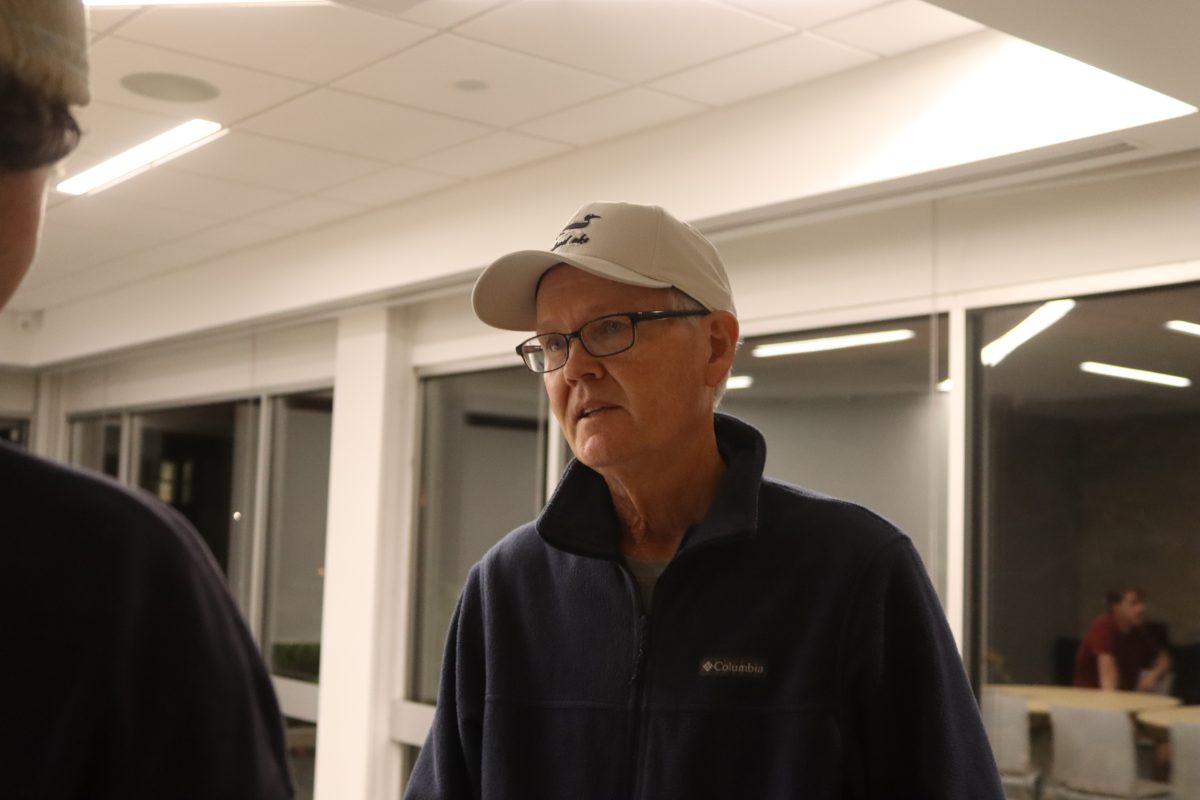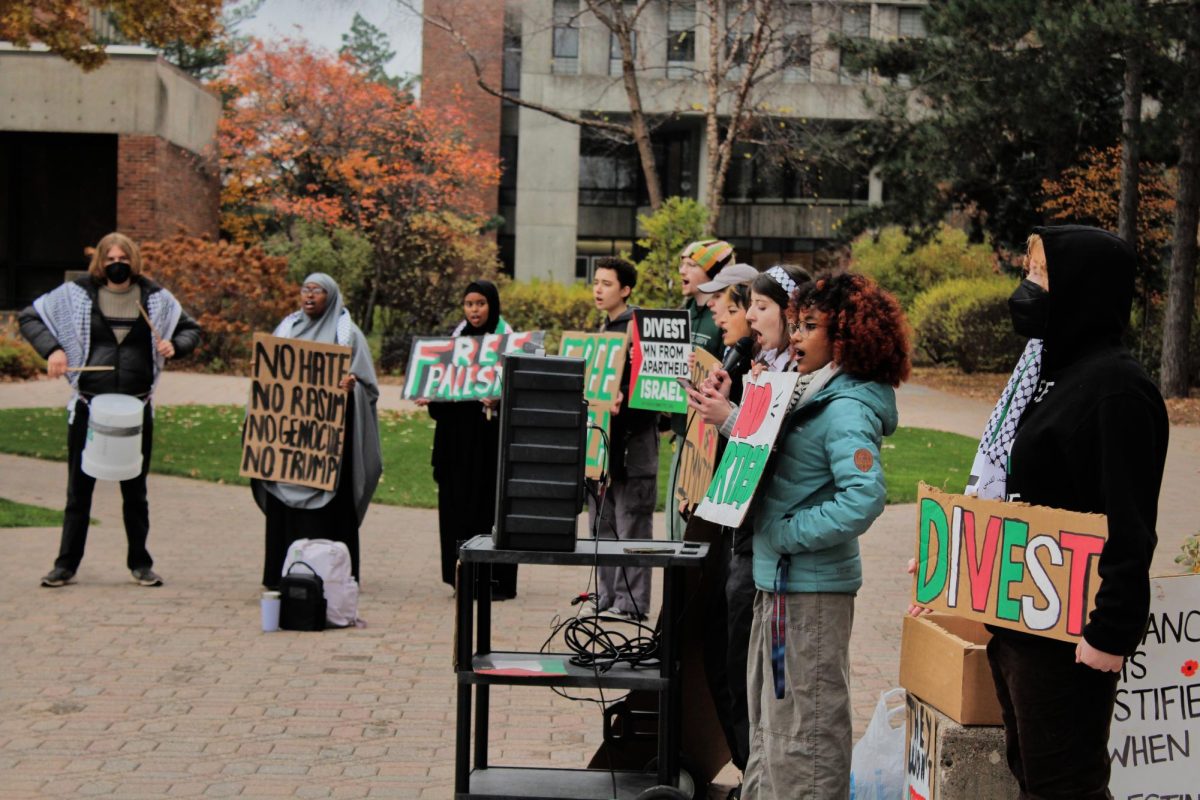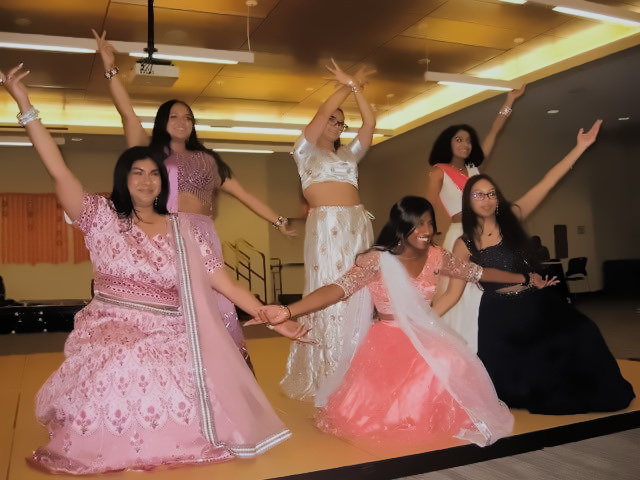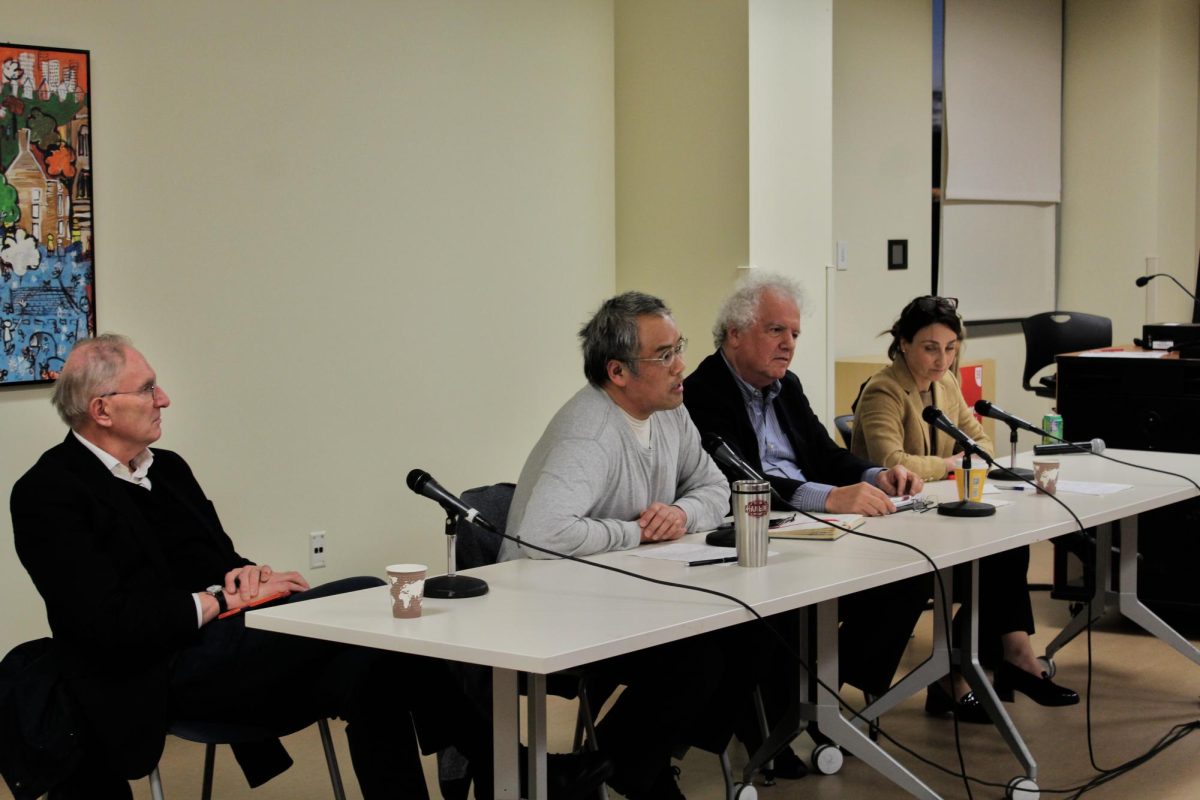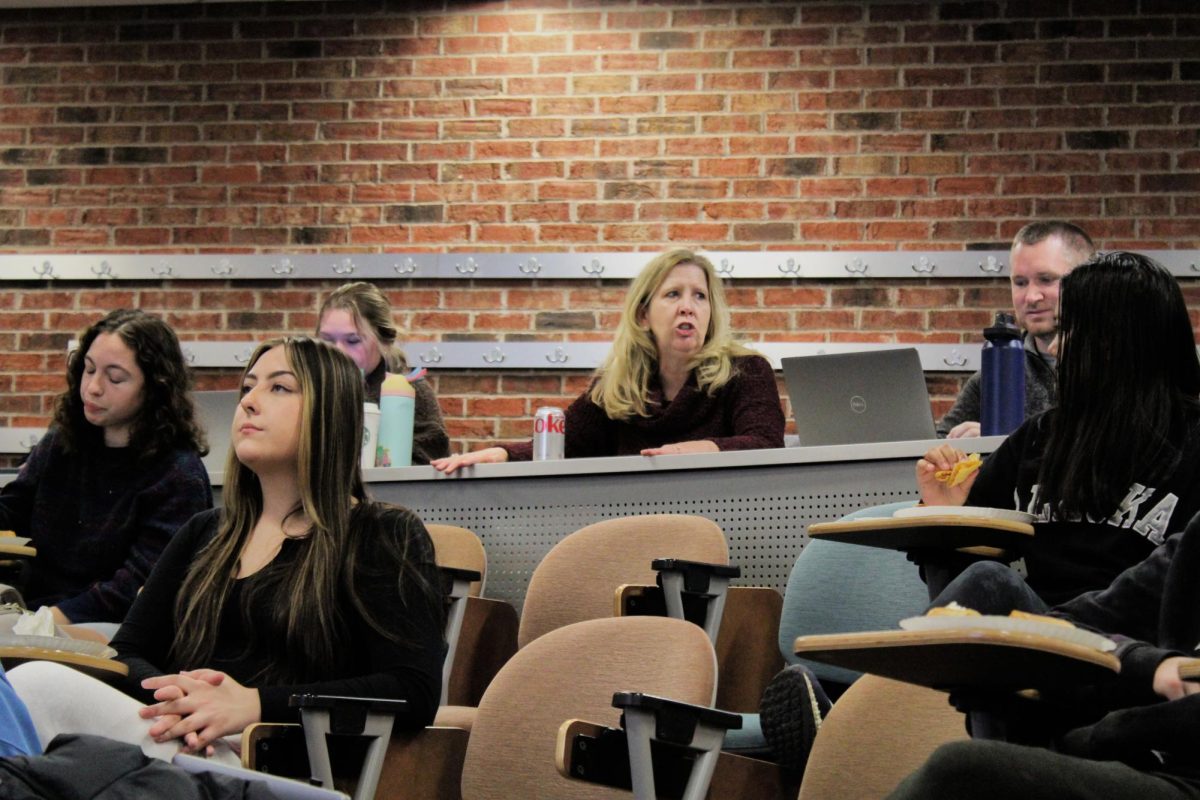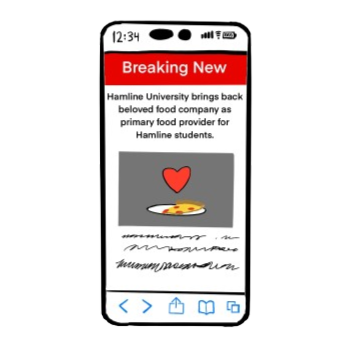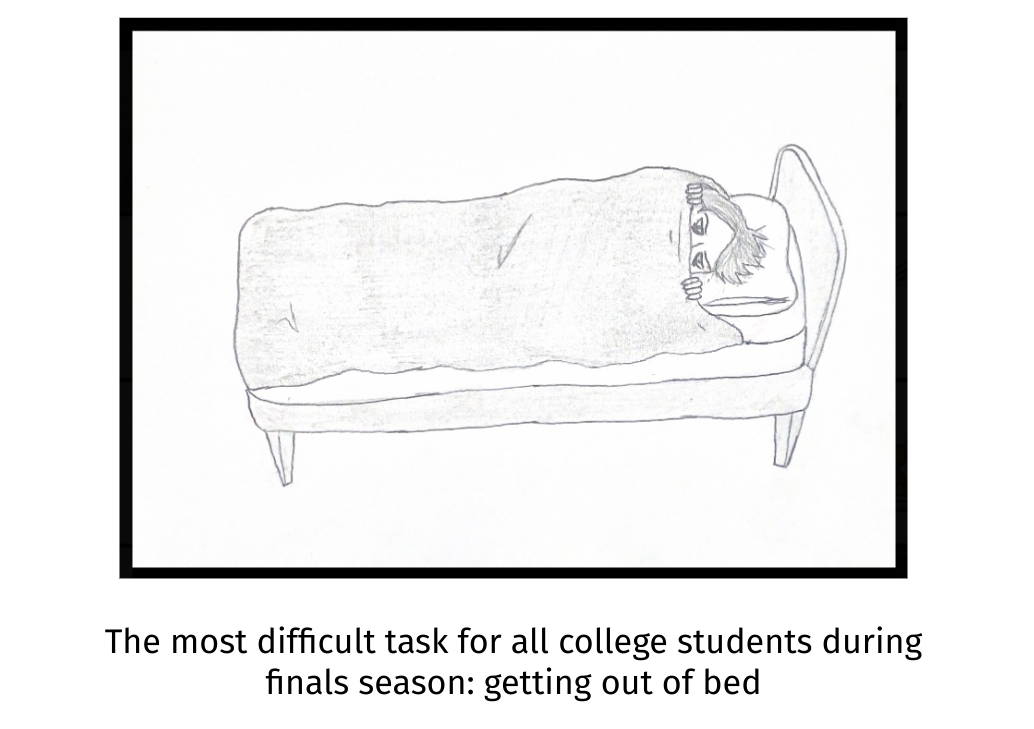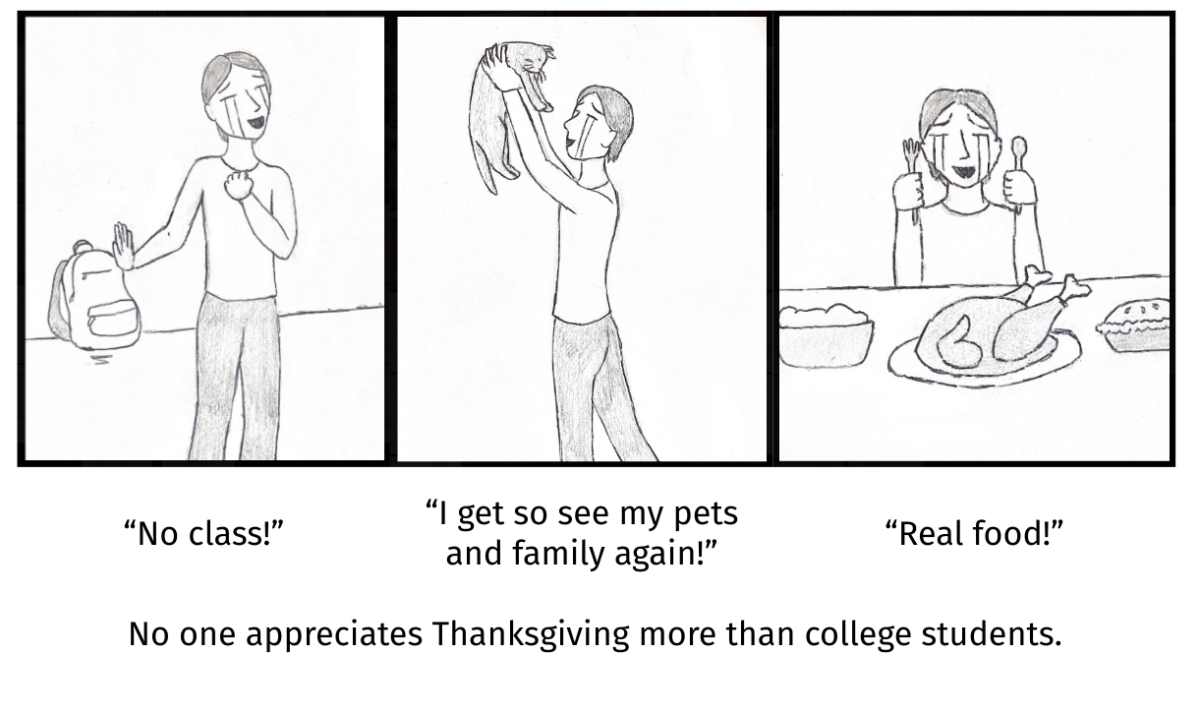Concerns were raised amongst the Hamline community after InterVarsity Christian Fellowship guest speaker Rick Mattson spoke on his view that same-sex intimacy is “sinful” at their “Tough Questions” event on Tuesday, Oct. 29.
When asked why modern biblical understanding of homosexuality has not evolved now after being observed as natural in other animal species, Mattson replied “you can say something is normal, that doesn’t make it right.”
He spoke on his interpretation of sexuality in the Bible, which he believes condemns any homosexual intimacy.
“Same-sex attraction in and of itself is simple,” Mattson said. “I don’t think the church is really saying [that attraction is a sin]. It’s the practice of sexual intimacy, with a person of the same sex, is where the line of sin is.”
He extended this condemnation to extra-—and pre-marital sexual intimacy, before remarking that he felt like he was being a little too blunt, and that that was not his intention.
In blog posts, podcasts and videos linked on his website, Mattson has discussed this belief extensively, and said that he would not support gay marriage amongst his Christian friends. He has also compared transgender and gay identities to being born with a “propensity toward alcoholism”.
In a commentary for the Oracle written prior to the event, senior June Gromis described her concern at how Mattson and InterVarsity market their views as “welcoming,” but in fact use this as a way to “lull them into accepting” regressive views on sexuality.
InterVarsity is a national evangelical organization that is not Hamline-affiliated or funded by HUSC but operates chapters on campuses across the country. Student leader for Hamline’s InterVarsity program Anna Deibert commented on navigating differences in the principles of the organization and those of the wider university community.
“It’s not the first time that InterVarsity as a whole has come into conflict with some of Hamline’s values,” Deibert said. “As a student leader who’s been a part of conversations like that, I’m really aware of that, and I want students to feel comfortable and safe in this space.”
She also said that it was important to the organization to honor different values and opinions.
“We want to make sure that it’s a safe space for people to engage in faith, whatever that looks like for them,” Diebert said.
Mattson previously served as the InterVarsity staff minister at Hamline for eleven years, before leaving to become a “traveling evangelist and apologist”. His previous involvement with campus and his connections with current Hamline InterVarsity staff led to his invitation to speak at the event. Mattson’s website describes his commitment to “respectful dialog with ‘friend and foe’ alike in the free exchange of ideas in the University.”
Deibert said that she trusted there was an understanding by staff minister Lucas Wencl and the supervisor for the wider area that they were inviting “someone who might have different opinions but will engage in conversations respectfully,” but understood how that could make students uncomfortable.
The board of Hamline’s LGBTQ+ student organization Spectrum said in a statement to the Oracle that Mattson’s words “will without a doubt be used to justify harassment and violence against queer students under the guise of faith.”
The board was concerned about the implications that Mattson’s stance could have on student welfare, describing the effects that the event could have on queer students as harrowing.
“We believe that Mr. Mattson engages in rhetoric that not only endangers LGBTQ people by villainizing their identities but further implies that gay and trans people can and should be ‘converted’ to cisheteronormative lifestyles,” Spectrum said. “For queer Christian students, especially closeted ones, his words perpetuate internalized homophobia and a sense of isolation from their community that is already widespread.”
Coordinator of Gender + Sexualities Programs Eli Scriver commented on how a single person being invited to answer questions unequivocally can have an especially powerful influence on campus culture, describing the platforming of such rhetoric as “disconcerting”.
“People have a right to free speech; they do not, however, have unlimited protection from social consequences or criticism for that speech,” Scriver said.
He also spoke to the impact such an event could have specifically on LGBTQ+ Christians.
“Christian students at Hamline deserve to hear diverse perspectives on difficult topics in faith,” Scriver said. “It also risks isolating LGBTQ+ Christian students at Hamline, who may feel unwelcome in faith-based spaces; that’s why I’m working with the Wesley Center to support new LGBTQ+ Christian programs for our students.”
He said he imagined the event could create feelings of uncertainty and even unsafety for some students, LGBTQ+ Christians in particular, and commented on how LGBTQ+ students are at higher risk of mental health issues and isolation.
“I encourage students, staff, and faculty to be outspoken in their support for LGBTQ+ students and LGBTQ+ liberation to help combat these feelings of isolation and abandonment,” Scriver said.

